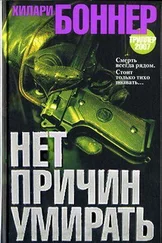Nick’s eyes widened. ‘I didn’t drive my own car to Torquay,’ he said. ‘I’m not an amateur, for God’s sake. I’d never have done that. I know my motor is distinctive, but it’s not the only one in the damned country. There are some others very nearly the same. Jesus! She didn’t see my car, Dad, no way.’
Kelly managed a wan smile. This, surely, was the final irony.
‘Well, there you go,’ he said quietly.
Nick stood up again, his handsome face creased in a frown.
‘What are you going to do now, Dad?’ he asked.
‘I’m going to get some fresh air,’ said Kelly. ‘I need it.’
‘I mean, are you going to the police?’
Nick reached out and put a hand on his father’s shoulder. Kelly shrugged him off. He couldn’t bear to be touched by his son. Not any more.
‘I haven’t decided,’ he said, leaning against the front door for support. ‘What would you do if I told you that I was going to the police — kill me?’
‘You know I couldn’t. I have already proved that.’
Kelly opened the door. Suddenly, he really could not stay in the same room as his only son for a second longer. As he left, he had the last word.
‘Yes, well, I haven’t made up my mind what I am going to do yet. So, you’ll just have to live with that for the time being, won’t you? Which is, of course, a luxury your various victims have been permanently denied.’
Meanwhile, at Hangridge, Karen left Cooper, Tompkins and the rest to methodically interview the entire barracks, if necessary, and headed back to Torquay police station, driven as earlier by PC Mickey Turner.
On the way, she tried to call Kelly but both his phone at home and his mobile were on voicemail.
‘I hope you’re still sleeping, Kelly, and not doing anything daft,’ she said in her message. ‘I just wanted to touch base with you. Guess what, Parker-Brown has flown the nest. Call me as soon as you can to let me know you’re all right. Let’s keep in touch.’
Back in her office, she learned that the patrol car which had just made a routine check on Kelly had reported that his borrowed Volvo was no longer there and his house appeared to be empty.
‘Damn the man,’ muttered Karen. He undoubtedly was doing something daft, and she was worried. His life could well still be in danger.
But, after instructing uniform to continue to look out for Kelly, she did her best to put him out of her mind. There was nothing more she could do.
She then contacted Tomlinson to bring him up to speed. Her call was double-edged. Parker-Brown had been transferred out of immediate harm’s way with extraordinary swiftness, she felt, and with interesting timing — just as she had been given the go-ahead to launch a full investigation into the Hangridge deaths.
Karen suspected that he had been tipped off. And she had a pretty good idea that Harry Tomlinson, under those damned clubby, all boys together, rules again, had called Parker-Brown and told him what to expect. She was pretty damned sure, though, that the chief constable would not for a moment have considered the possibility of Parker-Brown promptly doing a runner. After all, that was not playing the game. And, even if it was a bit childish, she was somewhat looking forward to telling Tomlinson about that.
And indeed, when she explained to him the situation which had confronted her at Hangridge that morning, he sounded both shocked and let down.
‘What? He’s just gone? And without telling anyone?’
Karen knew that what the chief constable meant was that Parker-Brown had not notified him that he was about to stage a disappearing act. And that, of course, no doubt broke all the rules of Tomlinson’s damn silly code of honour.
‘That’s right, sir,’ she responded expressionlessly. ‘And, naturally, a top priority of this investigation now is to find Parker-Brown. All I have been told so far is that he has been transferred, that he’s on special duties, and that his whereabouts are classified. The whole thing stinks of a cover-up, quite honestly, sir. Anyway, I was hoping you might be able to help, put some pressure on the MoD to tell us where he is, that sort of thing.’
‘Umm. I’ll do my best.’
For once, the chief constable did not argue. Karen reckoned he probably didn’t dare. He certainly wouldn’t want it ever to become public knowledge that he had given Parker-Brown any kind of warning about the impending investigation, as Karen suspected he had.
‘Thank you sir,’ she said.
‘He could already be a long way away, of course. We’ve still got dammed near a war situation in Iraq, after all, and that would certainly put him out of our grasp for a bit.’
‘It’s possible, sir. Yes.’
‘On the other hand, he might have gone nowhere at all. If you’re right about all this being another military smokescreen, well, he might just have gone home to put his feet up for a bit.’
‘Yes, sir.’
Karen sat very still for a few seconds after she ended the call. The chief constable had the previous day guessed straight away that she had set up Phil Cooper and the MCIT to support her bid for a formal investigation into Hangridge, and now once again she may have underestimated Tomlinson. Of course. Parker-Brown could well be at his home. Why on earth hadn’t she thought of that?
Within seconds of hanging up she patched herself through to Middlemoor again, on the line which she knew would connect her directly with Tomlinson’s secretary.
Joan Lockharte was her normal cool self. Karen responded merely by being brisk and businesslike.
‘I wondered if you happened to have a home address for Colonel Parker-Brown?’ she asked.
‘I might have,’ replied Joan.
Karen counted to six. ‘Could you look for me?’ she continued pleasantly.
There was a silence lasting little more than thirty seconds, while Joan presumably checked her computer database.
‘The Old Manor, Roborough,’ she recited crisply, when she picked up her phone again.
Karen may never have liked the woman, but she had always admired her efficiency. And had she been in the same room instead of on the end of a telephone line, she might have been tempted to give her a big hug. As it was, she settled for a very genuine thank you.
She was a little puzzled, though. Roborough was a village on the outskirts of Dartmoor, conveniently just a few miles from the centre of Plymouth, which had become extremely fashionable in recent years. And the Old Manor sounded a fearfully grand address to Karen. Parker-Brown had told her that he had married a rich wife, but he’d indicated that since the break-up of his marriage, his finances had been drained. Also, while she and Gerry had somehow never got around to discussing where he lived when he wasn’t in residence somewhere with his regiment, the Old Manor did not sound like the sort of house a man on his own would choose.
Kelly did not pick up his messages, not from Karen, not from anyone. He kept his mobile switched off while he was travelling to and from London and did not bother to check his answering machine when he finally arrived home.
It had been a nightmare journey. He still felt far from well. Kelly had been fortunate enough to pick up a cab almost immediately upon leaving Nick’s apartment block and stepping out into the street, which had been all for the best, because he had feared that he might be about to collapse.
He had recovered slightly on the drive across London to Paddington railway station, but none the less had been in something of a daze throughout the train journey to Newton Abbot. Appalling images of death and destruction, some that he had experienced during his long years as a globe-trotting journalist, and some which were merely the product of a feverish imagination, kept flashing across his mind.
Читать дальше












